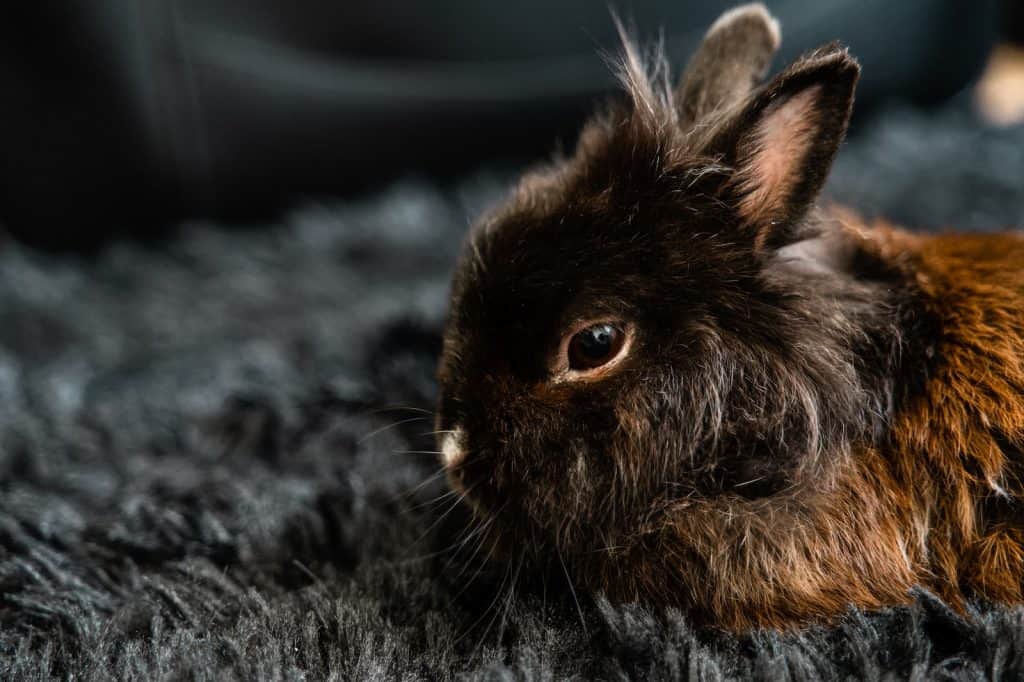
The American College of Allergy and Asthma (and Immunology) estimates that more than 50 million Americans have allergies. You may wonder if you will ever be able to have a pet if there are hypoallergenic breeds of animals other than cats and dogs if you are one of these people.
Today we will be discussing allergies and hypoallergenic pets. It can be hard to find an allergy-free pet. However, it is possible to combine a low-allergen pet with the appropriate cleaning methods for pets with less severe allergies.
We’ll be limiting the number of rabbit breeds to those who are allergic. You’ll know which type of hypoallergenic rabbit you can accept into your home by the end of this article.
What causes pet allergies?
Small amounts of allergenic proteins, which are formed from saliva and pet hair, can be found on pets’ skin. These protein allergens can be released into the environment and air by your pet’s shed skin. This can cause allergy sufferers itchy eyes, runny nose, dry throat, and itchy eyes.
The underlying cause for pet allergies is the combination of shedding skin, protein-rich saliva, and so-called “pet dander”. This knowledge helps us to understand how to reduce allergic reactions and what breeds are more likely to cause them.
What does “Hypoallergenic?” Really mean?
ScienceDaily provides a great summary of hypoallergenic.
Hypoallergenic means that allergy sufferers have fewer allergic reactions.
Hypoallergenic pets still have the ability to produce allergens but their fur type or lack thereof means that they produce less than other species.
Hypoallergenic pets can still affect people with severe allergies or asthma.
There is no way to be 100% allergen-free. However, minor allergic reactions can be controlled with the help of other options. When you’re looking for a hypoallergenic bunny, remember that it’s all about reducing symptoms.

Three things can make a rabbit breed hypoallergenic.
- Hair with shorter hair requires less grooming
- Plusher fur tends to shed less
- A smaller rabbit produces less dander than a larger one.
Let’s take a look at the rabbit breeds that meet these criteria.
1. The Rex Family

Mini Rexes as well as Rexes are known for their silky, rich fur which sheds less than other rabbit breeds. They are available in many colors and have a friendly disposition making them ideal for beginners. The Rex is an excellent choice for anyone with mild allergies.
2. Silver Marten

The Silver Marten, another rabbit breed, has a strikingly contrasting silver and black coat. Although they are larger than the average Chinchilla, some can weigh over 12 pounds. However, this breed sheds very little and needs to be groomed only occasionally.
3. Tan

The Tan is a full-arch hypoallergenic rabbit. It has a distinct look that resembles a wild hare. The Tan’s long, straight legs and high-heeled bellies complement their dense, dense fur and moderate weight (6 pounds). They are easy to care for and require very little grooming. Their laid-back attitude makes them popular pets.
Rabbit Breeds to Avoid if You Have Allergies
Although the hypoallergenic rabbits listed above can be used by people with mild to severe allergies, there are some rabbit breeds that should not be used. These include rabbits that have long hair, require frequent grooming, and exhibit a lot of shedding.
Avoid the Angora, Lionheads, and Jersey Woolies if you have allergies. Although each of these rabbit breeds is beautiful for its many qualities, allergy sufferers can feel constant discomfort from the combination of long hair, frequent shed, and intensive grooming.
Conclusion
You can keep your home clean and consider an air purifier. We appreciate your time and wish you all the best in finding the perfect rabbit for your home.
Which rabbit is the least allergenic?
The Mini Rex is also one of the most hypoallergenic pets available. Despite the fact that they lose their coat’s fur they create less dander than many other pets. For many individuals, the Mini Rex rabbit embodies all of the desirable characteristics of a family-friendly rabbit breed.
How can I get over my allergy to rabbits?
Nasal sprays containing anti-inflammatory steroids are quite effective in alleviating severe allergies. These medications inhibit the local immune system in the eyes and nose before the allergy develops. Others have had positive results with allergy desensitization injections; inquire about using your rabbit’s own hair.
Is it possible to be allergic to one rabbit but not another?
So you may be less sensitive to an individual rabbit, but not to a whole breed. The only way to find out is to meet the rabbit and watch how you respond.
Do rabbits cause asthma?
Cats, dogs, and horses, as well as rabbits, hamsters, mice and gerbils, and birds, can all cause allergic asthma symptoms.
What causes individuals to be allergic to rabbits?
Most people are sensitive to a protein in rabbit saliva or dander (skin cells), not the fur! The rabbit’s saliva is dispersed all over its body as it grooms. Petting or caressing a rabbit and then touching your face sends these proteins to sensitive regions like your nose and eyes.
What is the prevalence of rabbit allergy?
Rabbits are popular home pets for both adults and children, although there have been few instances of allergic reactions. While allergies to rabbits and rodents are widespread in laboratory animal caretakers,1 serious allergic responses to rabbits are uncommon.
Is rabbit saliva poisonous to humans?
Scratches and bites Rabbits having rabies can transfer the disease through their saliva in severe situations. Despite the fact that the wounds they inflict are typically small, rabbits carry germs on their skin, feet, and teeth that can cause secondary infections. It is critical to clean a wound with soap and water.
Is it possible to become ill from rabbit urine?
Urine from healthy animals is generally thought to provide little to no harm to humans. This is typically true, at least for the otherwise healthy human population, although there are exceptions, as with most things in infectious illnesses.
Is rabbit fur a source of allergies?
Individuals who have regular interaction with rabbits in laboratories and at home frequently develop IgE-mediated allergy sensitization (1, 2). Although rabbits are typical household pets, there have been few cases of serious respiratory allergies caused by rabbit exposure in the home.
Which rabbits are hypoallergenic?
Although Angora rabbits have lengthy fur, they are reported to shed the least of any breeds. Unfortunately, no rabbit is hypoallergenic; nevertheless, there are several steps you may take to reduce the likelihood of an allergic response.